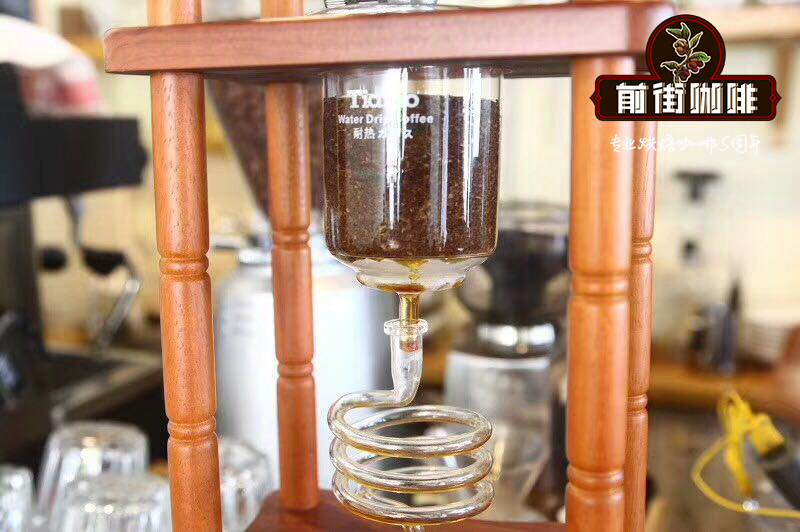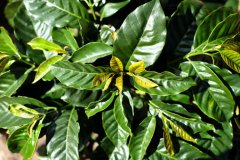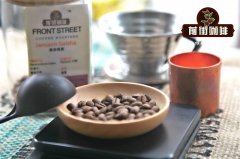Variety characteristics of Honduran coffee beans what's the flavor of Starbucks Honduran coffee beans?

Professional coffee knowledge exchange more coffee bean information please follow the coffee workshop (Wechat official account cafe_style)
The history of coffee beans in Honduras
Coffee was not grown in Honduras until the end of the 19th century. Unlike some countries, which are widely planted at home after being introduced from other countries, Honduras has a large domestic planting volume, 90% of which is consumed at home.
Probably feel that such good planting conditions, do not export is too bad, slowly start the export business. In 1990, exports were about tens of thousands of tons, and by 2018 it has reached about 360000 tons. Although the country is small, the production of coffee has reached the forefront of the world.
Characteristics of Honduran Coffee
Coffee beans are Arabica. Honduran coffee is rich in aroma, acidity and refreshing aftertaste, well balanced and soft. Only grow Arabica coffee, including bourbon, Kaddura, Tibica, Kaduai, Pacas, IHCAFE 90, Lompilla, H1 hybrid and H3 hybrid, etc.
Starbucks gives priority to buying coffee from growers and farmers who implement C.A.F.E. Practices and meet established standards in four directions of the program:
Product quality-all coffee beans must meet Starbucks quality Arabica coffee standards.
Economic responsibility-transparency is very important. Our suppliers are required to submit payment vouchers for raw (unroasted) coffee beans throughout the coffee supply chain, including receipts indicating the amount of coffee paid directly to the grower.
Social responsibility (assessed by third parties)-growers and farmers must have measures that can improve safe, fair and humane working conditions for reference. These include the protection of workers' rights and the provision of appropriate
Living conditions. Minimum wage requirements must be met and child labour / forced labour and discrimination must be addressed.
Environmental leadership (assessed by third parties)-in the process of growing and processing coffee, good environmental measures must be put in place to manage waste, protect water quality, save water and energy, protect biodiversity and reduce the use of agricultural fertilizers.
Third-party inspection agencies inspect farms and mills in accordance with C.A.F.E. Practicess. We work with the Scientific Certification system (SCS) to maintain an efficient and reliable inspection process.
Starbucks Honduran coffee beans are carefully selected, no matter which link may eventually cause Starbucks to give up the Honduran coffee choice.
Flavor:
The granules of coffee beans in Honduras are large in shape, uniform in size and glossy in color. Honduran coffee has a rich and mellow taste, taste is not astringent, not sour, mellow and aroma are very high, quite personality.
Marcala SHG SCAA scores range from 82 to 83, with excellent acidity, texture and sweetness.
SHG,SCAA score between 79 and 81, with solid acidity, body and sweetness, potential flavors are citrus, bitter chocolate, caramel, sugar cane and silky
HG, low acidity, good health, medium sweetness.
Important Notice :
前街咖啡 FrontStreet Coffee has moved to new addredd:
FrontStreet Coffee Address: 315,Donghua East Road,GuangZhou
Tel:020 38364473
- Prev

Green Gold in South America-an introduction to the story and culture of Colombian coffee producing areas
Professional coffee knowledge exchange more coffee bean information Please follow the coffee workshop (Wechat official account cafe_style) for those who are keen to go to all kinds of cafes in the world, going to the producing area is a kind of feeling. Beautiful and distant Colombia is not only the main producing area of the world's highest quality coffee, but also the coffee pilgrimage that all coffee people dream of. Most coffee farms in Colombia
- Next

How to cook Cuban coffee?
Professional coffee knowledge exchange More coffee bean information Please pay attention to coffee workshop (Weixin Official Accounts cafe_style) Cuba familiar and distant country, familiar with Cuba baseball team often wins the world championship of all levels of baseball, distant Cuba on the other side of the earth beautiful Caribbean Sea, coffee and other Cuban agriculture are unified management of the state, often with banana sugar cane
Related
- Detailed explanation of Jadeite planting Land in Panamanian Jadeite Manor introduction to the grading system of Jadeite competitive bidding, Red bid, Green bid and Rose Summer
- Story of Coffee planting in Brenka region of Costa Rica Stonehenge Manor anaerobic heavy honey treatment of flavor mouth
- What's on the barrel of Blue Mountain Coffee beans?
- Can American coffee also pull flowers? How to use hot American style to pull out a good-looking pattern?
- Can you make a cold extract with coffee beans? What is the right proportion for cold-extracted coffee formula?
- Indonesian PWN Gold Mandrine Coffee Origin Features Flavor How to Chong? Mandolin coffee is American.
- A brief introduction to the flavor characteristics of Brazilian yellow bourbon coffee beans
- What is the effect of different water quality on the flavor of cold-extracted coffee? What kind of water is best for brewing coffee?
- Why do you think of Rose Summer whenever you mention Panamanian coffee?
- Introduction to the characteristics of authentic blue mountain coffee bean producing areas? What is the CIB Coffee Authority in Jamaica?

